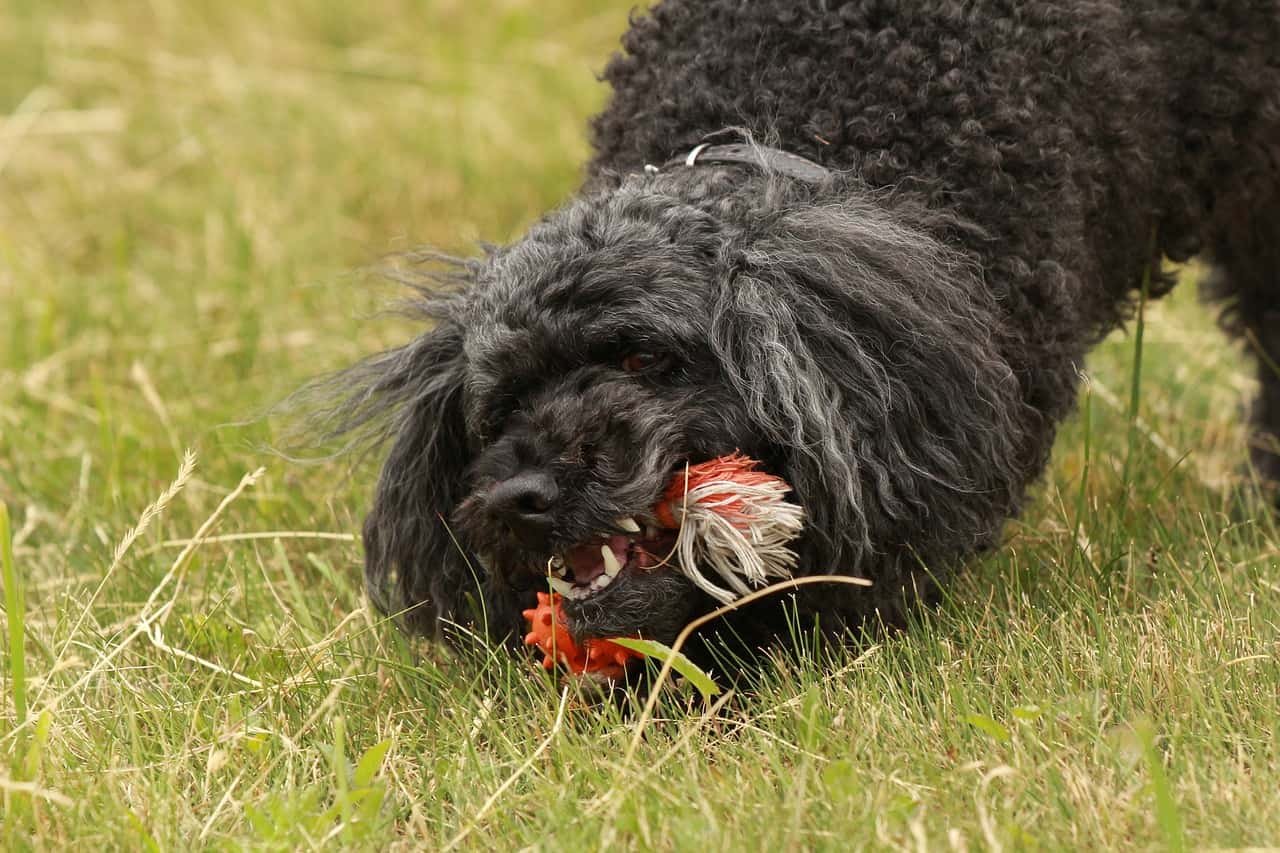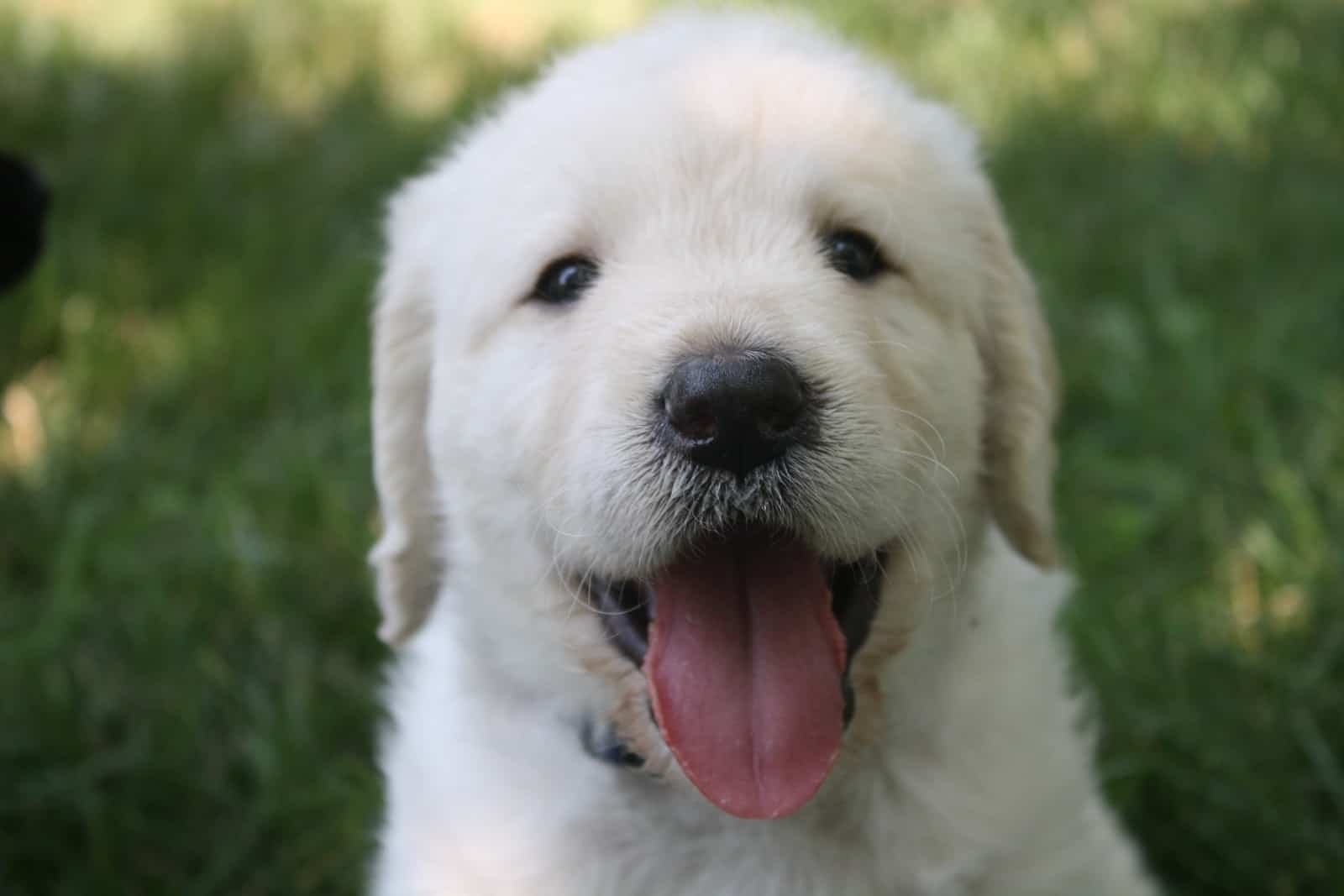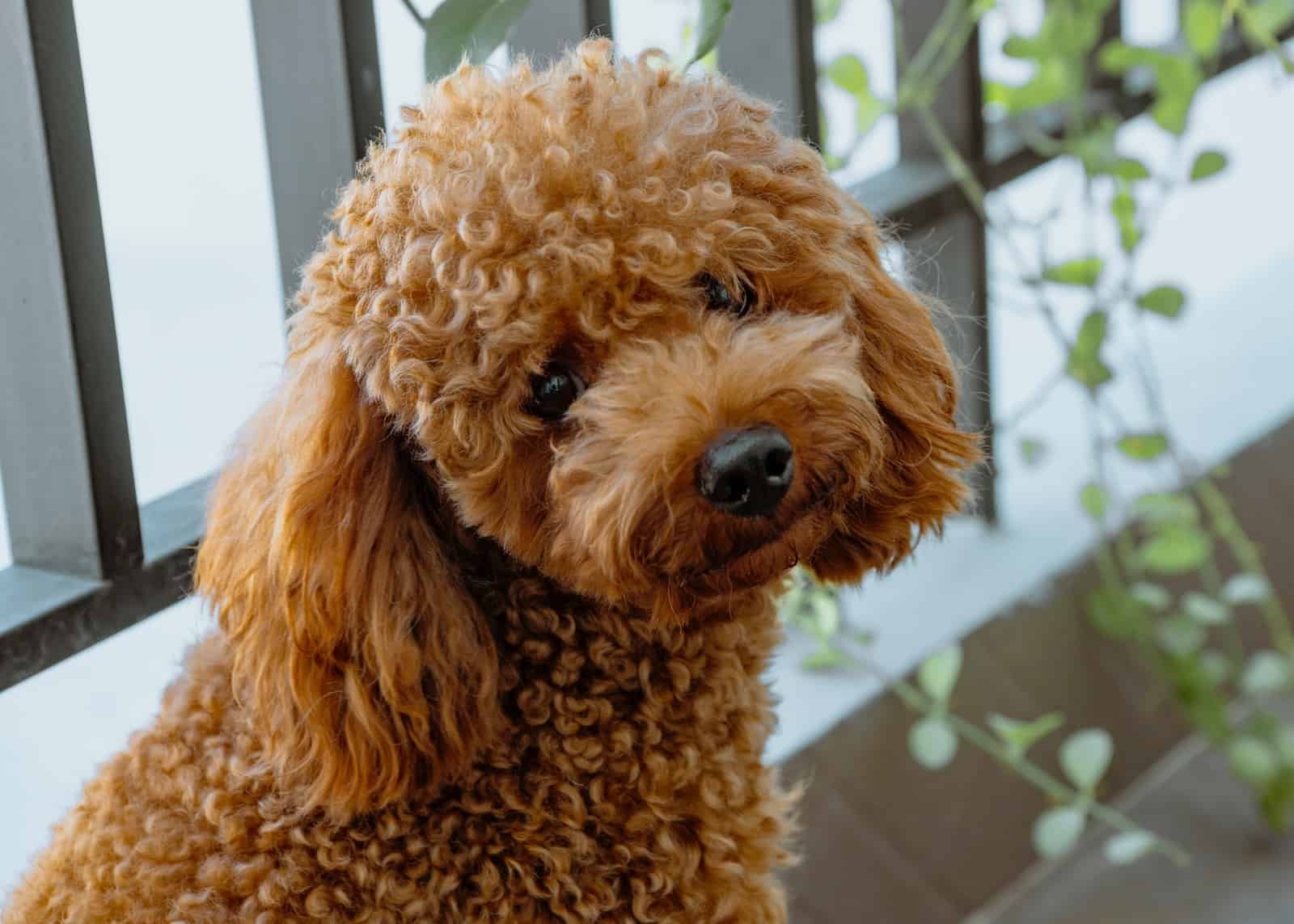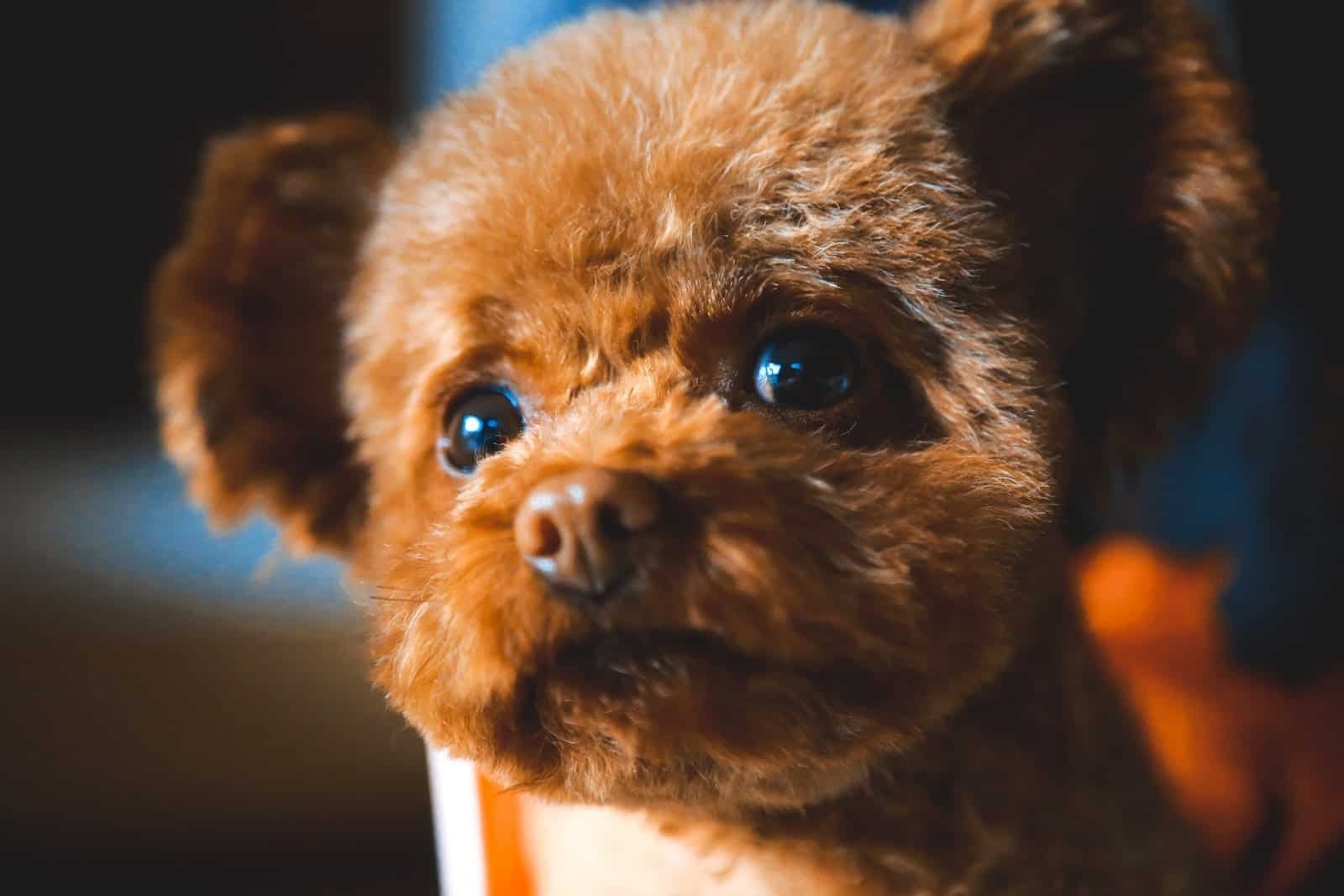Poodles are a popular breed of dog that come in a variety of sizes. Each size has its own set of unique characteristics that potential owners should consider before bringing one into their home. Understanding the pros and cons of different poodle sizes can help you make an informed decision about which size is right for you.
Standard poodles are the largest of the three main poodle sizes, standing over 15 inches tall at the shoulder and weighing between 45 and 70 pounds. Miniature poodles are smaller, standing between 10 and 15 inches tall and weighing between 10 and 15 pounds. Toy poodles are the smallest, standing less than 10 inches tall and weighing between 4 and 6 pounds. While each size has its own set of pros and cons, all poodles share certain traits, such as their curly, low-shedding coat and their high intelligence.
Key Takeaways
- Different poodle sizes have their own unique characteristics that potential owners should consider before making a decision.
- Standard, miniature, and toy poodles are the three main sizes of poodles, each with their own set of pros and cons.
- All poodles share certain traits, such as their curly, low-shedding coat and their high intelligence.
Understanding Poodle Sizes
Poodles come in three sizes: standard, miniature, and toy. Each size has its own unique set of characteristics that make them ideal for different situations. In this section, we will explore the pros and cons of each size to help you determine which poodle size is right for you.
Standard Poodle
The standard poodle is the largest of the three sizes, standing at 18 to 24 inches tall at the shoulder. They are known for their elegance, athleticism, and intelligence. Standard poodles are great for families who have a lot of space and enjoy outdoor activities. They are also hypoallergenic and do not shed much, making them a good choice for people with allergies.
However, standard poodles require a lot of exercise and mental stimulation, so they may not be suitable for people who have a busy lifestyle. They also require regular grooming to maintain their curly coat.
Miniature Poodle
The miniature poodle is smaller than the standard poodle, standing at 11 to 15 inches tall at the shoulder. They are known for their intelligence, loyalty, and affectionate nature. Miniature poodles are a good choice for families who have a smaller living space, such as an apartment or a townhouse.
Like the standard poodle, miniature poodles require a lot of exercise and mental stimulation. They also require regular grooming to maintain their curly coat. However, they are hypoallergenic and do not shed much, making them a good choice for people with allergies.
Toy Poodle
The toy poodle is the smallest of the three sizes, standing at up to 10 inches tall at the shoulder. They are known for their lively, curious, and playful personalities. Toy poodles are a good fit for families with small living spaces or apartments, and those who prefer indoor activities.
Toy poodles require less exercise than their larger counterparts, but they still need regular mental stimulation. They also require regular grooming to maintain their curly coat. Like the standard and miniature poodles, toy poodles are hypoallergenic and do not shed much, making them a good choice for people with allergies.
In conclusion, the three sizes of poodles offer a range of options for families who are looking for a hypoallergenic and intelligent dog. The size you choose will depend on your lifestyle and living situation. If you have a lot of space and enjoy outdoor activities, a standard poodle may be the right choice for you. If you have a smaller living space, a miniature or toy poodle may be a better fit. Regardless of the size you choose, poodles are loyal, affectionate, and intelligent dogs that make great companions.
Poodle Coats and Grooming
Poodles are known for their unique coats, which come in a variety of colors and textures. The most common poodle coat is curly, which requires regular grooming to keep it healthy and looking its best. In this section, we will explore the pros and cons of poodle coats and provide tips for grooming your poodle at home.
Shedding
One of the biggest advantages of poodle coats is that they shed very little, making them a great choice for people with allergies. However, this also means that poodle coats require regular grooming to prevent matting and tangling.
Clipping and Haircuts
Poodle coats require regular clipping to maintain their shape and prevent matting. Most poodle owners opt for a “teddy bear” cut, which leaves the coat a few inches long all over the body. However, there are many other styles to choose from, including the “continental” cut, which leaves the coat long on the legs and tail but short on the body.
Professional Grooming
While it is possible to groom your poodle at home, many owners prefer to take their dogs to a professional groomer. Professional groomers have the experience and tools necessary to give your poodle the best possible haircut and ensure that its coat is healthy and free of tangles.
Poodle Coat Types
Poodle coats come in a variety of textures, including curly, wavy, and straight. Curly coats are the most common and require the most maintenance, while straight coats are the easiest to care for. Wavy coats fall somewhere in between and require regular brushing to prevent matting.
In conclusion, poodle coats are unique and require regular grooming to keep them healthy and looking their best. While poodle coats require more maintenance than some other breeds, their low shedding and hypoallergenic qualities make them a great choice for many people. Whether you choose to groom your poodle at home or take it to a professional, regular maintenance is key to keeping your poodle’s coat healthy and beautiful.
Physical Characteristics and Health
Poodles come in three different sizes: Standard, Miniature, and Toy. Each size has its own unique physical characteristics and potential health issues.
Standard Poodles
Standard Poodles are the largest of the three sizes, standing at least 15 inches tall at the shoulder. They are elegant, athletic dogs with a muscular build and a curly, hypoallergenic coat that comes in a variety of colors, including black and white.
Despite their size and athleticism, Standard Poodles are prone to certain health issues, including hip dysplasia and cancer. They also have a higher risk of developing progressive retinal atrophy, a genetic eye disorder that can lead to blindness.
Miniature Poodles
Miniature Poodles are smaller than Standard Poodles, standing at 15 inches or under at the shoulder. They are also elegant dogs with a curly, hypoallergenic coat that comes in a variety of colors.
Like Standard Poodles, Miniature Poodles are prone to certain health issues, including patellar luxation and epilepsy. They also have a higher risk of developing dental problems, so regular dental care is important.
Toy Poodles
Toy Poodles are the smallest of the three sizes, standing no more than 10 inches tall at the shoulder. They are also elegant dogs with a curly, hypoallergenic coat that comes in a variety of colors.
Toy Poodles are prone to certain health issues, including dental problems and progressive retinal atrophy. They also have a higher risk of developing hypoglycemia, a condition that can cause seizures and even death if left untreated.
Overall, Poodles are generally healthy dogs with a lifespan of 10 to 14 years. However, it is important to be aware of the potential health issues associated with each size and to provide regular veterinary care to ensure your Poodle stays healthy and happy.
Poodle Temperament and Behavior
Poodles are known for their intelligence, elegant gait, and non-shedding coats. But what about their temperament and behavior? It’s important to understand the personality traits of each poodle size before bringing one home as a companion.
Personality Traits
All poodles, regardless of size, share common personality traits. They are highly intelligent, active, and require plenty of attention. Poodles thrive on human companionship and can become anxious or destructive if left alone for long periods.
Temperament
Poodles have a reputation for being skittish, but this is not always the case. Proper socialization and training can help prevent fearful behavior. Poodles are generally friendly and outgoing dogs, but they can be reserved around strangers.
Obedience and Agility
Poodles are obedient dogs and excel in agility training. Their intelligence makes them quick learners, and they enjoy the mental stimulation that obedience and agility training provide.
Size Differences
The temperament and behavior of poodles can vary depending on their size. Standard poodles are the largest and most athletic of the three sizes. They are energetic and require plenty of exercise. Miniature poodles are smaller and more adaptable to apartment living. Toy poodles are the smallest and are often considered lap dogs.
Pros and Cons
The pros and cons of poodle temperament and behavior depend on the individual dog and the owner’s lifestyle. Poodles make great companions for active families who can provide plenty of attention and exercise. They are loyal and affectionate dogs that thrive on human companionship.
However, poodles can become anxious and destructive if left alone for long periods. They require regular grooming and can be prone to health issues such as hip dysplasia and skin allergies.
Overall, poodle temperament and behavior are influenced by their size, socialization, and training. With proper care and attention, poodles make loving and loyal companions.
Pros and Cons of Different Poodle Sizes
Poodles are a beloved breed of dog that come in three different sizes: standard, miniature, and toy. Each size has its own unique set of characteristics that make them appealing to different types of owners. In this section, we will explore the pros and cons of each size to help you make an informed decision about which poodle is right for you.
Pros of Standard Poodles
Standard poodles are the largest of the three sizes, standing at over 15 inches tall at the shoulder. They are known for their athleticism, intelligence, and elegant appearance. Some of the pros of owning a standard poodle include:
- They make great family dogs due to their gentle and friendly nature.
- They are highly trainable and excel in obedience competitions.
- They have a hypoallergenic coat that sheds very little, making them a good choice for people with allergies.
- They have a longer lifespan than many other breeds, with an average lifespan of 12-15 years.
Cons of Standard Poodles
While standard poodles have many positive qualities, there are also some potential downsides to consider. These include:
- They require a lot of exercise to keep them physically and mentally healthy.
- Their large size means they may not be suitable for apartment living.
- They can be prone to certain health issues such as hip dysplasia and bloat.
Pros of Miniature Poodles
Miniature poodles are smaller than standard poodles, standing at between 10-15 inches tall at the shoulder. They are known for their intelligence, playful nature, and affectionate personality. Some of the pros of owning a miniature poodle include:
- They are great companion dogs and love to be around their owners.
- They are highly trainable and excel in obedience competitions.
- They have a hypoallergenic coat that sheds very little, making them a good choice for people with allergies.
- They are well-suited to apartment living due to their smaller size.
Cons of Miniature Poodles
While miniature poodles have many positive qualities, there are also some potential downsides to consider. These include:
- They require a lot of grooming to keep their coat in good condition.
- They can be prone to certain health issues such as dental problems and patellar luxation.
- They can be prone to separation anxiety if left alone for long periods of time.
Pros of Toy Poodles
Toy poodles are the smallest of the three sizes, standing at under 10 inches tall at the shoulder. They are known for their intelligence, affectionate nature, and adorable appearance. Some of the pros of owning a toy poodle include:
- They make great lap dogs and love to cuddle with their owners.
- They are highly trainable and excel in obedience competitions.
- They have a hypoallergenic coat that sheds very little, making them a good choice for people with allergies.
- They are well-suited to apartment living due to their small size.
Cons of Toy Poodles
While toy poodles have many positive qualities, there are also some potential downsides to consider. These include:
- They can be prone to certain health issues such as dental problems and tracheal collapse.
- They require a lot of grooming to keep their coat in good condition.
- They can be easily injured due to their small size, and may not be suitable for households with young children.
Overall, poodles are a wonderful breed of dog that come in three different sizes to suit a variety of lifestyles and living situations. By considering the pros and cons of each size, you can make an informed decision about which poodle is right for you.
Training and Exercise Needs
Poodles are intelligent, trainable, and energetic dogs that require daily exercise and mental stimulation. They are highly trainable and respond well to positive reinforcement training. However, their training and exercise needs vary depending on their size.
Toy Poodles
Toy Poodles are the smallest of the Poodle sizes, weighing between 4 and 6 pounds. They are energetic, intelligent, and trainable dogs that require daily exercise and mental stimulation. They are suitable for apartment living and do not require a yard. They enjoy walks, playtime, and interactive toys that challenge their minds.
Miniature Poodles
Miniature Poodles are slightly larger than Toy Poodles, weighing between 10 and 15 pounds. They are energetic and intelligent dogs that require daily exercise and mental stimulation. They are suitable for apartment living but benefit from having a yard to play in. They enjoy walks, playtime, and interactive toys that challenge their minds.
Standard Poodles
Standard Poodles are the largest of the Poodle sizes, weighing between 40 and 70 pounds. They are energetic, intelligent, and trainable dogs that require daily exercise and mental stimulation. They are suitable for apartment living but benefit from having a yard to play in. They enjoy walks, playtime, and interactive toys that challenge their minds.
Training
Poodles are highly trainable dogs that respond well to positive reinforcement training. They are intelligent and eager to please, making them easy to train. They benefit from early socialization and obedience training to prevent behavioral issues. They require mental stimulation to prevent boredom and destructive behavior.
Exercise
Poodles require daily exercise to stay healthy and prevent obesity. They enjoy walks, playtime, and interactive toys that challenge their minds. They benefit from having a yard to play in, but it is not a requirement. Poodles are energetic dogs that require at least 30 to 60 minutes of exercise every day to keep them healthy.
In conclusion, Poodles are intelligent, trainable, and energetic dogs that require daily exercise and mental stimulation. Their training and exercise needs vary depending on their size, but they all benefit from early socialization, obedience training, and mental stimulation. They enjoy walks, playtime, and interactive toys that challenge their minds. Poodles are suitable for apartment living but benefit from having a yard to play in.
Poodle Breeding and Care
Poodles are a popular breed of dog that come in three different sizes: standard, miniature, and toy. While there are some differences in their temperaments and care needs, all poodles require proper breeding and care to ensure they are healthy and happy pets.
Breeding
When looking for a poodle breeder, it’s important to find a reputable one who prioritizes the health and quality of their dogs. A good poodle breeder will be knowledgeable about the breed and will be able to provide advice on care and socialization. They will also be able to provide documentation of health screenings and genetic testing to ensure that their dogs are free from any hereditary health issues.
It’s important to note that breeding should only be done by experienced and responsible breeders who have a deep understanding of the breed and their specific needs. Breeding should never be done solely for profit, and any breeder who prioritizes profit over the health and well-being of their dogs should be avoided.
Care
Regardless of the size of your poodle, they all require proper care to ensure they are healthy and happy. This includes regular grooming to keep their coat healthy and free from mats, as well as regular exercise to keep them physically fit and mentally stimulated.
Poodles are also highly intelligent and require socialization and training to prevent behavioral issues. This includes exposing them to different people, animals, and environments from a young age, as well as providing them with consistent training and positive reinforcement.
When it comes to feeding your poodle, it’s important to provide them with a high-quality, balanced diet that meets their specific nutritional needs. This may vary depending on their size, age, and activity level, so it’s important to consult with your veterinarian to determine the best diet for your poodle.
In summary, breeding and caring for a poodle requires knowledge, responsibility, and a commitment to the health and well-being of the dog. By finding a reputable breeder and providing proper care, you can ensure that your poodle is a happy and healthy companion for years to come.
Poodles as Family Dogs
Poodles are a popular choice for families looking for a loyal and intelligent companion. They come in three sizes – toy, miniature, and standard – each with their own unique characteristics that make them suitable for different types of families. In this section, we will explore the pros and cons of each size of poodle as a family dog.
Toy Poodles
Toy Poodles are the smallest of the three sizes, weighing between 4 and 6 pounds. They are ideal for families who live in small apartments or houses and do not have a lot of outdoor space. Toy Poodles are affectionate and love to be around people, making them great companions for families with older children. However, they may not be the best choice for families with small children as they can be fragile and easily injured.
Miniature Poodles
Miniature Poodles are slightly larger than Toy Poodles, weighing between 10 and 15 pounds. They are energetic and playful, making them great for families with children of all ages. Miniature Poodles are also highly intelligent and easy to train, which makes them a good choice for first-time dog owners. However, they can be sensitive and may not do well in homes with a lot of noise or chaos.
Standard Poodles
Standard Poodles are the largest of the three sizes, weighing between 45 and 70 pounds. They are known for their athleticism and are often used as hunting dogs. Standard Poodles are also highly intelligent and make great family pets. They are gentle and patient with children, making them a good choice for families with young kids. However, they may not do well in homes with a lot of noise or conflict, as they prefer peace and harmony.
Overall, poodles make great family dogs due to their intelligence, loyalty, and affectionate nature. However, it is important to choose the right size of poodle for your family’s lifestyle and needs. If you are considering adopting a poodle, be sure to visit your local animal shelter to find the perfect companion for your family.
Poodles and Allergies
If you or someone in your household suffers from allergies, owning a pet can be a challenge. Fortunately, Poodles are often considered a good choice for allergy sufferers due to their hypoallergenic and low-allergen coat.
Poodles have a curly coat that sheds less than other breeds, which can reduce the amount of allergens in the air. However, it is important to note that no dog breed is truly hypoallergenic, and some people with severe allergies may still have a reaction to a Poodle.
If you are interested in owning a Poodle but have concerns about allergies, it is recommended to spend some time with the breed before making a final decision. This can help you determine if you have any adverse reactions to the dog’s coat or dander.
It is also important to note that while Poodles may be low-shedding, they do require regular grooming to prevent matting and tangling of their curly coat. This can be done at home or by a professional groomer.
Overall, Poodles can be a great choice for allergy sufferers, but it is important to understand that individual reactions can vary. If you are considering adding a Poodle to your family, it is recommended to do your research and consult with a veterinarian or allergy specialist to determine if the breed is right for you.
Poodle Life Expectancy and Health Conditions
Poodles are generally a healthy breed with a lifespan of 12-15 years for Standard Poodles, which is slightly less than the lifespan of Miniature and Toy Poodles. However, like all breeds, Poodles are prone to certain health conditions.
Health Conditions
Some of the most common health conditions that Poodles may experience include hip dysplasia, which is a genetic condition that can cause arthritis and lameness; ear infections, which can be caused by their long, floppy ears; and eye problems, such as cataracts, which can cause blindness.
Poodles are also prone to skin allergies, which can cause itching, hair loss, and skin infections. Additionally, they may be sensitive to certain foods, so it’s important to monitor their diet and avoid any foods that may cause an allergic reaction.
Separation Anxiety
Poodles are social dogs that thrive on human interaction and can suffer from separation anxiety if left alone for extended periods. Separation anxiety can cause destructive behavior, excessive barking, and other behavioral problems. It’s important to provide your Poodle with plenty of exercise and mental stimulation, and to gradually acclimate them to being alone for short periods of time.
Sensitivity
Poodles are intelligent and sensitive dogs that are highly attuned to their owner’s emotions. They may become anxious or stressed if their owner is upset or if there is tension in the household. It’s important to provide your Poodle with a calm and stable environment, and to avoid exposing them to stressful situations whenever possible.
Overall, Poodles are a wonderful breed that make great pets for families and individuals alike. By providing them with proper care, exercise, and attention, you can help ensure that your Poodle lives a healthy and happy life.
Poodles in History and Pop Culture
Poodles have been around for centuries and have a rich history that dates back to the 15th century. The breed originated in Germany and was initially bred as a water retriever. The poodle’s curly coat was perfect for keeping them warm in cold water, and their intelligence and athleticism made them excellent hunting companions.
Over time, poodles became popular with French nobility, who appreciated their elegant appearance and trainable nature. The breed quickly became a symbol of luxury and refinement, and many wealthy families began to keep poodles as pets.
Today, poodles are still associated with luxury and refinement, and they remain one of the most popular dog breeds in the world. They have also made their way into pop culture, appearing in movies, television shows, and even on the runway.
One of the most famous poodles in pop culture is the character of Rufus in the movie “Legally Blonde.” Rufus is a standard poodle who belongs to the main character, Elle Woods. Rufus is portrayed as intelligent, loyal, and stylish, which are all traits that many poodle owners would say are accurate descriptions of their own dogs.
Poodles have also been featured in many fashion shows, with their curly coats and elegant appearance making them a favorite of many designers. Additionally, poodles have been used in advertising campaigns for a variety of products, including cosmetics, clothing, and luxury goods.
Despite their reputation as a high-end breed, poodles come in a variety of sizes and are suitable for many different lifestyles. From the tiny teacup poodle to the moyen poodle, there is a poodle size that can fit into almost any home.
In conclusion, poodles have a fascinating history and have become an enduring symbol of luxury and refinement. Their intelligence, athleticism, and elegant appearance have made them a favorite of many people around the world. Whether you are looking for a poodle puppy or considering a poodle mix, there is no denying that these dogs are truly special.
Frequently Asked Questions
Poodles come in a variety of sizes, each with its own unique characteristics. Here are some frequently asked questions about Poodle sizes and their pros and cons.
What are the different sizes of Poodles and their characteristics?
There are four different sizes of Poodles: Standard, Miniature, Toy, and Teacup. Standard Poodles are the largest and can weigh up to 70 pounds. Miniature Poodles weigh between 10 to 15 pounds, Toy Poodles weigh between 5 to 10 pounds, and Teacup Poodles weigh less than 5 pounds. Each size has its own unique characteristics, but all Poodles are known for their intelligence, loyalty, and hypoallergenic coat.
What are the pros and cons of owning a Standard Poodle?
Standard Poodles are known for their athleticism and grace. They are also intelligent, loyal, and hypoallergenic. However, they require a lot of exercise and grooming, and they can be prone to certain health issues such as hip dysplasia and bloat.
Which size of Poodle is best for apartment living?
Toy and Miniature Poodles are often recommended for apartment living because of their smaller size. However, it is important to note that all Poodles require regular exercise and mental stimulation, regardless of their size.
What are the disadvantages of owning a Toy Poodle?
Toy Poodles are known for their small size and hypoallergenic coat, but they can be prone to certain health issues such as dental problems and luxating patellas. They also require regular grooming to maintain their coat.
What are the common health issues associated with different sizes of Poodles?
All Poodle sizes can be prone to certain health issues such as hip dysplasia, bloat, and eye problems. Toy Poodles can be prone to dental problems and luxating patellas, while Standard Poodles can be prone to hip dysplasia and bloat.
What are the differences in temperament between different sizes of Poodles?
Despite their shared traits of intelligence and loyalty, Poodles of different sizes can have varying temperaments. Standard Poodles are often described as athletic and graceful, while Toy Poodles are often described as lively and playful. Miniature Poodles are often described as affectionate and intelligent.






